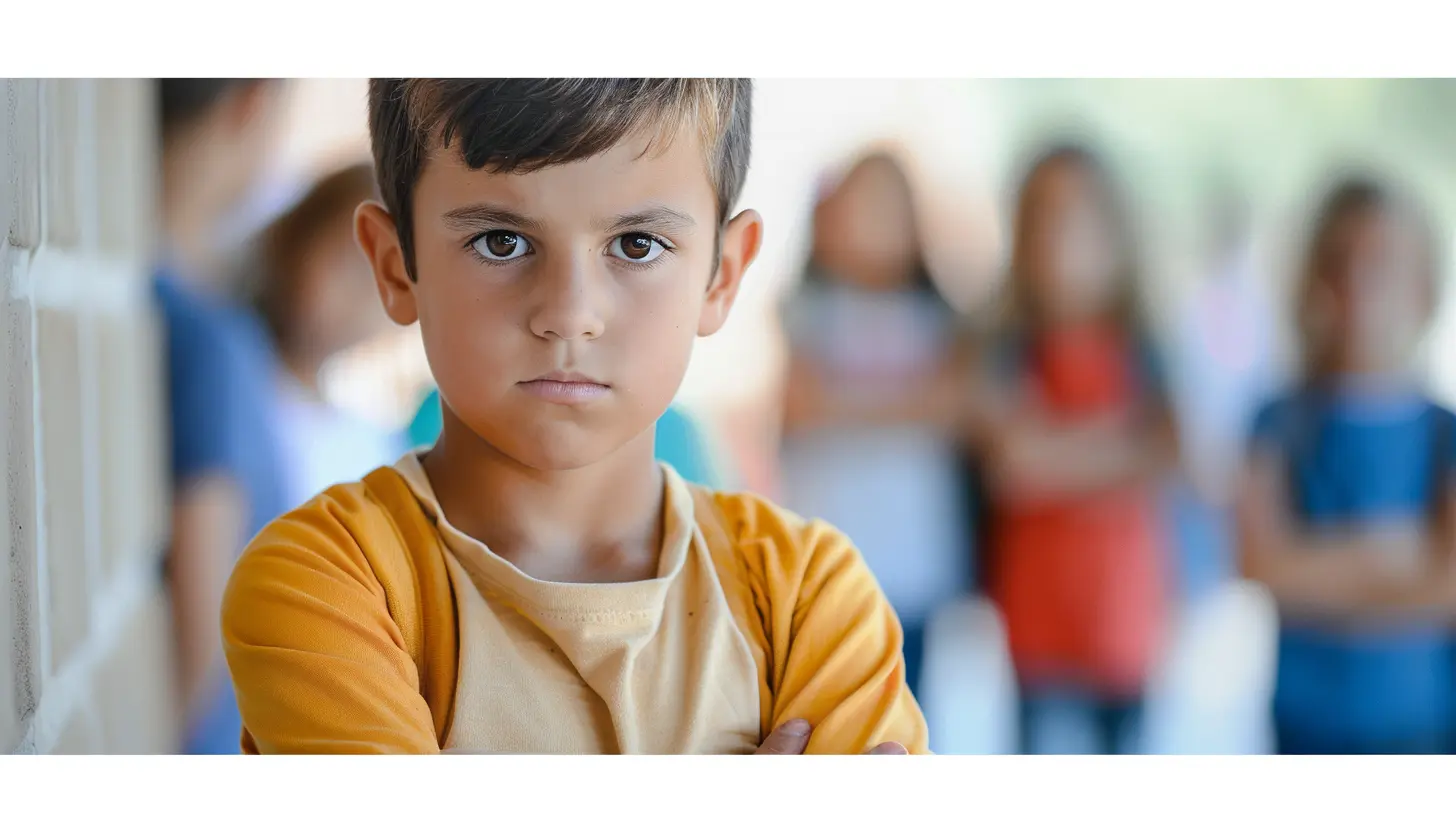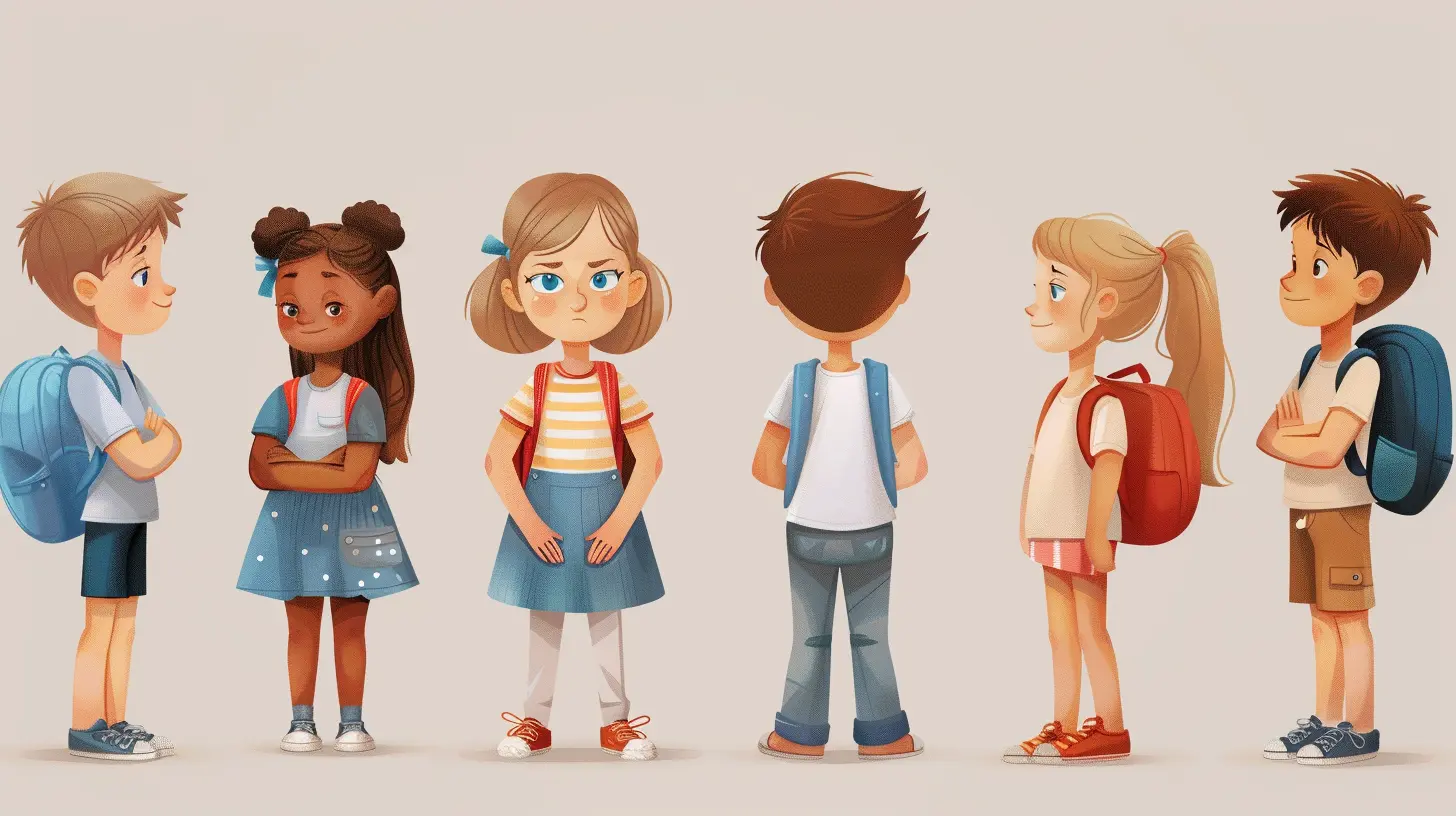How to Navigate Difficult Conversations with Teachers About Bullying
15 March 2025
Bullying is one of those issues that no parent ever wants to deal with, yet it’s, unfortunately, a reality for many children. When your child comes home upset, dreading school, or suddenly losing interest in the things they once loved, it’s natural to feel protective and frustrated. But what happens when you need to confront the issue with their teacher?
Talking to a teacher about bullying can be nerve-wracking. You want to be heard, you want your child to be safe, and, most importantly, you want action. However, approaching these conversations without tension or blame is crucial in ensuring that your concerns are taken seriously.
So, how do you navigate this delicate conversation effectively? In this guide, we’ll walk you through the process step by step. 
Recognizing the Signs of Bullying
Before approaching the teacher, it’s essential to ensure that what your child is experiencing is, in fact, bullying. Kids have conflicts all the time—friends argue, disagreements happen, and sometimes children say things they shouldn’t. But bullying is different.Bullying is:
- Repeated – It happens over and over again, not just a one-time incident.
- Intentional – The bully intends to hurt, humiliate, or intimidate the victim.
- Power-imbalance driven – The bully typically has some kind of advantage (physical strength, social status, or emotional dominance).
Some common signs your child may be experiencing bullying include:
✔ Sudden anxiety about going to school
✔ Unexplained bruises, torn clothing, or missing belongings
✔ Changes in appetite or sleep patterns
✔ Declining academic performance
✔ Avoiding certain people or locations
Once you’re confident bullying is happening, it’s time to take action. 
Preparing for the Conversation
Walking into a meeting unprepared can lead to frustration and confusion. Instead, take some time to gather your thoughts.1. Document Everything
Keep a record of any bullying incidents, including:- What happened
- When and where it occurred
- Who was involved
- How your child reacted
- Any messages, photos, or screenshots (if cyberbullying is involved)
Having detailed notes shows that you’re not just reacting emotionally; you have facts to support your concerns.
2. Talk to Your Child
Before speaking to the teacher, sit down with your child and let them share their experience openly. Avoid pushing them for details they’re not ready to share, but encourage them to express their feelings.Let them know that you’re on their side and that addressing the situation doesn’t mean they’ll get into trouble. Reassure them that seeking help is the right thing to do.
3. Know Your Desired Outcome
What do you want to come out of this conversation? A plan for monitoring the situation? A meeting with the other student’s parents? An intervention at school?Having a clear idea of what outcome you’re hoping for will help guide the discussion. 
Approaching the Teacher with Confidence
Now, let’s get to the moment of truth—actually sitting down with your child’s teacher. This can be intimidating, but a calm, solution-focused attitude will make a world of difference.1. Schedule a Private Meeting
Avoid ambushing the teacher at drop-off or pick-up when they are juggling other responsibilities. Instead, request a private meeting where you’ll have their full attention.You can say something like:
"I’d love to set up a time to talk about a concern regarding my child. When would be a good time for you?"
This keeps things professional and collaborative from the start.
2. Stay Calm and Respectful
It’s natural to feel emotional when discussing your child’s well-being, but keep in mind that the teacher may not be aware of the situation. Starting with an aggressive tone could immediately put them on the defensive.Instead, try:
"I appreciate everything you do for the students, and I know you have a lot on your plate. I just wanted to bring something to your attention that has been affecting my child."
This acknowledges the teacher’s efforts and invites them into a conversation rather than an argument.
3. Present the Facts Clearly
Stick to what you’ve documented. Avoid vague statements like "My child says they’re being bullied all the time." Instead, be specific:"On Monday, my son mentioned that another student pushed him and called him names during recess. He also told me that this has happened several times over the past month."
This approach ensures the teacher sees the pattern.
4. Listen to the Teacher’s Perspective
Once you’ve shared your concerns, give the teacher a chance to respond. They might be aware of the situation already (or they might not be).Some helpful questions to ask include:
- Have you noticed any interactions between the students involved?
- Are there any school policies in place to address bullying?
- What steps can we take together to support my child?
This turns the conversation into a collaboration rather than a confrontation. 
Following Up and Taking Further Action
1. Work Together on a Plan
Once the teacher acknowledges the issue, ask them about potential next steps. Will they monitor the students more closely? Change seating arrangements? Implement conflict resolution strategies?Offer your own suggestions as well, such as an open line of communication or regular check-ins.
2. Keep the Conversation Going
After the initial meeting, don’t assume the problem is solved. Follow up with the teacher after a week or two to ask if they’ve noticed any changes. If the bullying continues, request another meeting or escalate the issue to the principal.3. Know When to Take It Higher
If the teacher downplays the issue or refuses to take action, don’t be afraid to go up the chain of command.- Step 1: Speak to the school counselor or administrator
- Step 2: If nothing improves, request a meeting with the principal
- Step 3: If the school remains unresponsive, check your district’s policies or consult with a parent advocacy group
Your child’s safety and emotional well-being come first—don’t let the issue be ignored.
Helping Your Child Cope with Bullying
While working with the teacher to address the issue, continue supporting your child at home.1. Build Their Confidence
Encourage activities that boost their self-esteem—sports, music, hobbies, or anything that makes them feel good about themselves.2. Teach Assertiveness, Not Aggression
Help them practice responding to bullies confidently but calmly. Simple phrases like "Stop that" or "Leave me alone" can be effective when said with a strong voice.3. Foster Friendships
Encourage them to spend time with friends who make them feel supported. Bullies often target kids who seem isolated, so strong friendships can be a protective shield.4. Keep Communication Open
Let your child know they can always talk to you. Check in regularly with "How was your day?" or "Anything on your mind?"—showing that you’re always there to listen.Final Thoughts
Having a tough conversation with your child’s teacher about bullying isn’t easy, but it’s necessary. Remember to approach the discussion with facts, a calm tone, and a solution-focused attitude. By working together, you can create a safer, more supportive environment for your child.At the end of the day, your child needs to know one thing above all else: they’re not alone. And as their parent, you’ll always be in their corner, fighting for their well-being.
all images in this post were generated using AI tools
Category:
Dealing With BullyingAuthor:

Zelda Gill
Discussion
rate this article
7 comments
Whitney Robinson
Talking to teachers about bullying is like navigating a minefield in flip-flops. Just remember: deep breaths, a sprinkle of humor, and maybe a cookie as a peace offering!
April 7, 2025 at 2:47 AM

Zelda Gill
Thank you for the creative imagery! A light-hearted approach can certainly ease tension in tough conversations. Remember, communication and understanding are key!
Candace Velez
Great insights! Navigating tough conversations with teachers about bullying can be daunting. Your tips empower parents to advocate for their kids while fostering collaboration. It's all about open dialogue for a supportive school environment!
April 6, 2025 at 5:03 AM

Zelda Gill
Thank you! I'm glad you found the tips helpful. Open dialogue is indeed key to fostering a supportive environment for our children.
Fable Wolfe
In whispers of care, let hearts align, With courage, approach the daunting design. Together, we weave a tapestry bright, Guiding our children toward love and light.
April 4, 2025 at 5:00 AM

Zelda Gill
Thank you for your beautiful words! Together, we can create a supportive environment where open communication leads to healing and understanding.
Mindy McKinstry
Navigating conversations with teachers about bullying can be challenging. Prepare by gathering specific examples and focusing on your child's feelings. Approach the discussion collaboratively, seeking solutions together. Establishing a positive relationship with educators can lead to better support and a safer environment for your child.
April 3, 2025 at 2:24 PM

Zelda Gill
Thank you for the insightful comment! Gathering specific examples and focusing on emotions is crucial for effective discussions with teachers. Collaboration fosters a positive relationship that can enhance support for students facing bullying.
Zachary McClendon
Open communication is key; your child deserves support. Trust your instincts, and advocate for their well-being confidently.
April 2, 2025 at 3:37 AM

Zelda Gill
Thank you for your insightful comment! Open communication and advocacy are indeed essential in addressing bullying effectively.
Uzi Dorsey
Great article! Remember, open communication is key. Empowering parents to approach teachers confidently can create a safer environment for our children. Together, we can make a positive change!
March 28, 2025 at 5:52 AM

Zelda Gill
Thank you for your insightful comment! I completely agree—open communication is vital for fostering a supportive environment for our children. Together, we can drive positive change!
Lorelei Lambert
Open communication and empathy are key; approach conversations with teachers collaboratively to foster understanding and solutions.
March 27, 2025 at 5:21 PM

Zelda Gill
Absolutely! Open communication and empathy are essential for building trust and finding effective solutions in challenging conversations about bullying.
MORE POSTS

Navigating School Breaks as a Full-Time Working Mom

How to Feel Less Guilty About Prioritizing Your Needs

Handling Teenage Drama in a Calm and Effective Way

How to Encourage a Growth Mindset in Kids

Authoritative Parenting: Striking the Right Balance Between Love and Limits

Reclaiming Your Morning: A Parent’s Guide to Early Self-Care